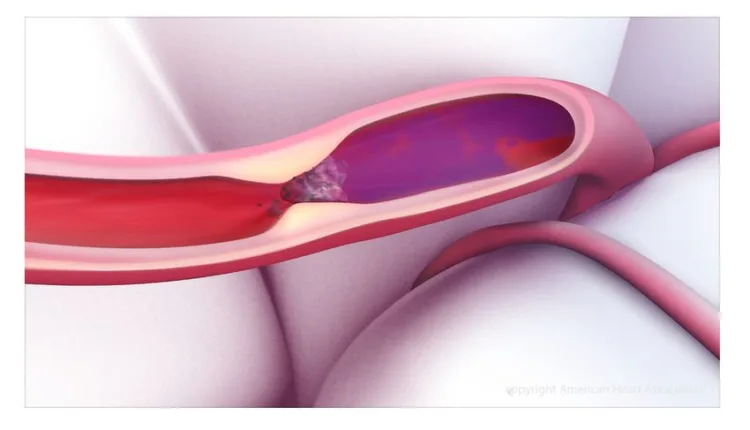
No Boost in Stroke Recovery with Blood Thinners: Study Findings
TL/DR –
Research conducted as part of the MOST trial found that giving blood thinners along with clot-busting medication did not improve 90-day outcomes for ischemic stroke (clot-caused stroke) patients. This contradicts the positive results seen in heart attack treatments using the same method. The trial, which was halted early due to these findings, also showed that the additional use of blood thinners did not increase the risk of brain bleeding.
Research Highlights on Stroke Medication Effects
Although blood thinners combined with clot-busting medication may aid in heart attack treatment, they showed no improvement in 90-day outcomes for ischemic stroke patients. A large clinical trial planned for over 1,200 ischemic stroke patients was discontinued after the first 500 showed no signs of benefit. However, the combined medication did not increase the risk of brain bleeding.
According to research presented at the American Stroke Association’s International Stroke Conference 2024, these findings are from the MOST trial. This 57-center U.S. trial aimed to improve functional outcomes at 90 days post-stroke but was halted as it seemed unlikely that a benefit would be found.
The MOST trial studied adults with severe ischemic stroke who were likely to need rehabilitation. Participants were divided into three groups, all receiving a standard clot-busting medication within three hours of stroke onset. Additional treatments included blood thinners argatroban and eptifibatide or a placebo treatment.
The primary outcome was the participants’ physical function level 90 days after their stroke. This was assessed using the Modified Rankin Score, a 6-point disability scale. No significant benefit was found in the interim analysis after 500 patients were enrolled.
Results of the MOST Trial
In the 514 patients enrolled before the trial was stopped, the two blood thinners used did not significantly increase the risk of brain bleeding. However, neither of the blood thinners improved outcomes for stroke survivors. On a 0 to 10 utility-weighted scale, patients receiving placebo scored an average of 6.8, those receiving argatroban scored 5.2, and those receiving eptifibatide scored 6.3.
About the Trial
The three-arm study was conducted at 57 hospitals in the United States from October 2019 to July 2023. A total of 514 adults, average age 68, were enrolled in the trial, which was halted due to lack of benefit. All participants had ischemic stroke that rated a 6 or higher on the NIH Stroke Severity Scale. They were treated within three hours of stroke onset using the standard approach of thrombolysis.
Neither the patients nor the professionals rating patient outcomes knew which patients received a blood thinner or placebo. It’s worth noting, trials are ongoing to determine whether delivering blood thinners to the affected artery may improve outcomes for patients undergoing thrombectomy.
The study was conducted at National Institutes of Health StrokeNet sites. The authors reported funding from the National Institute of Neurological Disorders and Stroke, a division of the National Institutes of Health. The Association’s financial information is available online.
About the American Stroke Association
The American Stroke Association is devoted to saving people from stroke, the second leading cause of death worldwide. The association conducts research, fights for public health policies, and provides lifesaving tools and information. To learn more or get involved, call 1-888-4STROKE or visit stroke.org.
—
Read More Health & Wellness News ; US News
